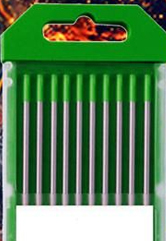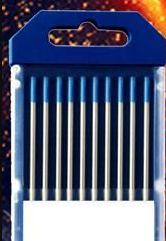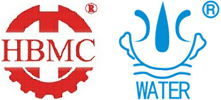Identifying Tungsten Electrodes: A Comprehensive GuideWhen it comes to welding, choosing the right tungsten electrode is crucial for achieving optimal results. This guide will walk you through the process of identifying tungsten electrodes, helping you make informed decisions for your welding applications.
Color Coding
Tungsten electrodes are often color-coded to indicate their composition and characteristics. Understanding these color codes is essential for selecting the appropriate electrode for your welding needs. Here are some common color codes:
Green: Pure tungsten electrodes, suitable for AC welding of aluminum and magnesium.
Red: Thoriated tungsten electrodes, known for their high temperature resistance and longevity. Ideal for DC welding of steel and stainless steel.
Yellow: Lanthanated tungsten electrodes, offering good arc stability and a longer lifespan. Suitable for both AC and DC welding of various materials.
Blue: E3 tungsten electrodes, designed for excellent performance in both AC and DC welding, especially on aluminum and magnesium alloys.
Gray: Ceriated tungsten electrodes, providing stable arcs and good conductivity. Suitable for DC welding of steel and stainless steel.

Pure Tungsten Electrode
Electrode Markings
Examine the markings on the tungsten electrode for additional information. Manufacturers often imprint codes or labels on the electrode to indicate its type, composition, and recommended applications. Pay close attention to these markings to ensure compatibility with your welding requirements.

Lanthanated Tungsten Electrode
Grinding Techniques
The way an electrode is ground can also provide clues about its type. Different electrodes require specific grinding techniques to maintain the desired tip shape and enhance performance. Consult the manufacturer's guidelines for the recommended grinding angles and methods for each type of tungsten electrode.
Common Questions About Tungsten Electrodes
Here are some frequently asked questions about identifying tungsten electrodes:
Q: Can I use any tungsten electrode for all welding applications?
A: No, different tungsten electrodes are designed for specific welding applications. It's crucial to choose the right electrode based on the material you are welding and the welding process (AC or DC).
Q: How often should I replace tungsten electrodes?
A: Electrode replacement frequency depends on usage and wear. Inspect the electrode regularly, and replace it if you notice signs of wear or degradation that could affect welding quality.
Q: Can I use a colored electrode for a different welding process?
A: It's not recommended. Each color-coded electrode is specifically designed for certain applications, and using the wrong type may result in poor performance and welding quality.
By understanding color codes, examining markings, and following proper grinding techniques, you'll be well-equipped to identify tungsten electrodes accurately. Make informed choices to enhance the quality and efficiency of your welding projects.







